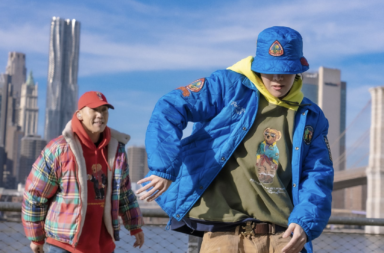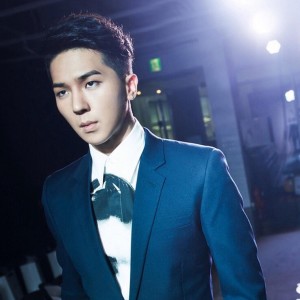 It has been an interesting few weeks in the K-pop world. Between Rap Monster and Mino, we’ve gotten a firm reminder of how powerful words really can be. We’ve been discussing these issues a lot as a staff, so let’s bring our opinions out into the open.
It has been an interesting few weeks in the K-pop world. Between Rap Monster and Mino, we’ve gotten a firm reminder of how powerful words really can be. We’ve been discussing these issues a lot as a staff, so let’s bring our opinions out into the open.
This week’s question is: How powerful are words? What do you think of the fact that both of these scandals have come about solely because of spoken words? And are words enough to fix them?
Cjontai: You know what struck me as interesting about Rap Mon and Mino’s scandals? It wasn’t so much the things they said in so much it was how fans responded to what they said. It also seemed that both sides shared the same views but on opposite sides of the spectrum.
Korean fans were offended by Mino’s rap, yet a lot of international fans kind of laughed it off, dismissing the K-fan outrage because his rap was in the context of a hip hop competition. On the flipside of that, you have Rap Mon’s lip slip, and the roles were reversed. Now a majority of K-fans thought I-fans were overly dramatic for demanding an apology, excusing it with a language barrier issue. The difference in Rap Mon’s case is a lot more I-fans also agreed with the K-fans, dismissing the feelings of those who were bothered by his remarks.
I question if Mino’s apology would’ve even happened without the threat of a lawsuit. As for Rap Mon, we’re never getting an apology, and even if one came now, I feel like it would come off as forced as Mino’s because of the death threats. Threats should not be a means to get someone to say, “I’m sorry.”
Being American, this odd policy surrounding the taboo of apologies baffles me. Still, I get why it’s hard for them seeing as how it’s like a damned-if-you-do-damned-if-you-don’t situation there. Look at T-ara — no matter how many years they spend repenting, their bullying scandal is a huge, unforgivable sin to their domestic fans. Their remorseful words mean nothing to them, which might explain why a lot of companies don’t even bother with apologies. Why say “sorry” if you believe the response will be negative anyway?
 Mark: Not to brush off the Mino scandal, but there’s so much more going on in what the Rap Mon scandal indicates. The cultural clash between the social perception of skin color is highly rooted in the history of different regions and hemispheres, and it’s remarkable, yet not coincidental, that these perceptions leave a lasting impact on so many people today.
Mark: Not to brush off the Mino scandal, but there’s so much more going on in what the Rap Mon scandal indicates. The cultural clash between the social perception of skin color is highly rooted in the history of different regions and hemispheres, and it’s remarkable, yet not coincidental, that these perceptions leave a lasting impact on so many people today.
Quick and dirty history lesson: Koreans and many nearby countries which absorbed Chinese cultural influences for countless centuries view the shadeism implications of Rap Mon’s statement as acceptable and indisputable due to the class-based mentality that was established over a millennium of cultural and political influence that the Chinese established over the region. This is widely credited to the whole ‘rich folk stay indoors and remain pale while poor folk work the fields and get tanned’ narrative which oversimplifies a much more complex social structure and essentially enabled a belief that shadeism is essentially natural, normal and inevitable.
Meanwhile, the social struggles in North America can be largely viewed as a class conflict distinguished largely by race, one which glaringly disputes the Melting Pot ideology that certain countries desperately attempt to uphold. While I understand that shadeism is different from racism, it can also be said that shadeism is merely an extension of racism. Whereas racism singles out the differences between races, shadeism singles out the differences within them. It’s simply different variances of grey; shadeism just draws the line a little further.
As for Rap Monster, he’s not issuing a full-blown apology because he doesn’t believe in his heart of hearts that he is in the wrong. The people around him and the society he was raised in joke about shadeism like how American TV shows joke about flaming gay men — it may startle a few people, but mostly everyone gets a good laugh out of it. Shadeism, of course, does not bode well for peoples who embody a history of racism and make the connection that the two “isms” are essentially different degrees of the same thing — discrimination. I agree with Cjontai that an apology is not necessary because it’s too late to put the worms back in the can. The only good that can come out of this is that it will hopefully foster cross-cultural constructive dialogue about the issue.
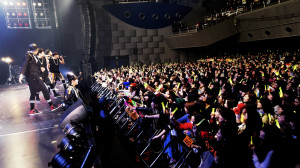 Cjontai: I’d like to clarify that I’m not saying it’s pointless to apologize. It just seems to me that in South Korea, reactions to apologies are so inconsistent that I’m sure most of the time, idols don’t know what to say outside of a stock response. In other words, they lack serious PR training.
Cjontai: I’d like to clarify that I’m not saying it’s pointless to apologize. It just seems to me that in South Korea, reactions to apologies are so inconsistent that I’m sure most of the time, idols don’t know what to say outside of a stock response. In other words, they lack serious PR training.
Laverne: While I didn’t understand the outrage over the Mino scandal, some Koreans have explained that the reason the OB/GYN profession was so upset is because there is a stigma attached with going to the gynecologist when you’re not pregnant. It’s so bad that girls and women will avoid going to the OB/GYN even for health issues, causing their problems to worsen. So to a profession that already has a negative/shameful association with it, his remark was especially callous.
But like Mark, I find that Rap Monster’s situation took the spotlight within the international fandom, perhaps because we don’t need cultural context to understand why his remarks were so hurtful. There were two aspects of this that made the situation even more hurtful: the lack of Big Hit‘s response and the vitriol from the “Oppa didn’t mean it” squad.
Focusing on the first part for this roundtable, Big Hit obviously knew Rap Monster said something wrong. You don’t get a YouTube video pulled off for nothing. The icing on the cake, though, was the continued posting on SNS as if nothing had happened. If he truly didn’t do anything wrong, why delete the YouTube video?
What this goes to show is that BTS and Big Hit pretend to care about their international fans but can’t put their money where their mouth is. Even if Rap Monster doesn’t think what he said was wrong, celebrities release apologies all the time to show their fans they “care.” I don’t think it’s too late for an apology; it’s never too late. But what I want more than an apology is for him to truly understand WHY what he said was hurtful, which, truthfully, I don’t think will happen anytime soon.
SILENCE IS BETTER THAN BULLSHIT 😒
— Bang yongguk (@BAP_Bangyongguk) January 28, 2015
Cjontai: Anyone else have the Bang Yong-guk tweet, “Silence is better than bullshit” resonating through their head here? Maybe that’s the dominant attitude behind staying quiet.
Camiele: This is my take on it; it’s going to be to the point because quite frankly I’m just sick of it.
There’s no way in the world Rap Monster didn’t know that what he said could be taken a certain way. He’s not stupid, nor is his English as bad as his apologists purport it to be. In fact, he clarified what he meant by “too black” in order to get a reaction, which he did get (someone in the press actually had a good laugh). It’s not a matter of “learning from his mistake.” He doesn’t think he made a mistake, nor do many of his fans. It has nothing whatsoever to do with not understanding why anyone would be offended by what he said. It’s more that he and most idols and their companies just don’t care. After all, it’s not like there isn’t a population of tan and mixed-heritage citizens in South Korea. It’s not like their mixed-heritage population hasn’t dealt with prejudice based on their mixed ancestry and the color of their skin. The mainstream Korean audience of “pure,” porcelain-skinned citizens, in terms of who they’re catering their shows, idols and beauty products to finds it hilarious to point a finger and giggle at this “other” part of their population.
In that way, there’s not a thing different between SK and the States, for example. As much as people publicly abhor the treatment of dark-skinned people and Black Americans, in all honesty the value of Black lives and opinions is near negligible here. So while words are what got him in this mess, I’m not sure words could just as easily get him out. As Laverne said, it’s never too late for a sincere apology. But if you’re not sorry and don’t see any reason to apologize to an entire faction of would-be fans, what’s the point in an apology other than to save face? According to his fans and those for whom being ridiculed for skin color isn’t an issue, he doesn’t have a reason to apologize. A larger percentage of his fans really don’t give a shit if his darker-skinned fans and brown-skinned international fans have a problem with it. Our presence is barely valid, therefore not important enough to warrant sympathy or actual remorse.
It’s not that people can’t learn from their mistakes. It’s that they don’t want to or feel they have any reason to. When it comes right down to it, domestic audiences are all that matter, and in the end there’s a very specific demographic they’re trying to reach. And it ain’t their dark-skinned and mixed-heritage fans.
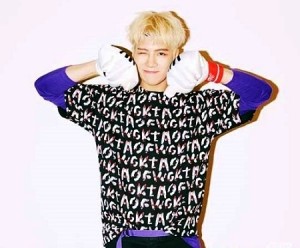 Cjontai: That’s what makes what Got7‘s Jackson did so awesome. Not only did he acknowledge the feelings of fans offended by that blackface photo he re-posted, but he took responsibility for his actions and apologized without hiding behind some stock response by his agency. It’s really sad to think that what Jackson did is a rarity in K-pop when it should be the norm. And did Jackson or Got7’s popularity plummet when he said “sorry?” The answer is no! Fans not only accepted his words, but they also thanked him and continue to support the group even more. This proves words do have a positive impact.
Cjontai: That’s what makes what Got7‘s Jackson did so awesome. Not only did he acknowledge the feelings of fans offended by that blackface photo he re-posted, but he took responsibility for his actions and apologized without hiding behind some stock response by his agency. It’s really sad to think that what Jackson did is a rarity in K-pop when it should be the norm. And did Jackson or Got7’s popularity plummet when he said “sorry?” The answer is no! Fans not only accepted his words, but they also thanked him and continue to support the group even more. This proves words do have a positive impact.
Andy: Words are like tooth paste: once it’s out, you can’t put it back in the tube. They have a lot of power. If they didn’t, why would we give them so much meaning? Just look at “love;” it’s such a small word but carries heavy weight when uttered. Wounds caused by words aren’t like physical injuries that can be mended easily. The hurt still lingers, regardless of what happens afterward. That’s evidenced by how many of us writers here at SB have spoken about our past experiences regarding race. However, an apology goes a long way in at least dissipating some of the anger and disappointment.
Like others, I don’t see why Rap Monster (well, more like Big Hit, because they handle the PR), can’t just say “my bad.” It doesn’t matter if it’s insincere, late or not going to get a positive response. Just a little bit of acknowledgement that his words caused a ruckus in the international fandom would be enough, right? Nobody is asking him to do the whole shaved-head-reflect-while-on-hiatus thing. He just needs to say…something. At least Mino and Jackson had the wherewithal to speak up, regardless of their respective timings and catalysts.
Camiele: See, I’m of the mind if you don’t mean your apology and are just doing it so I’ll keep on your bandwagon: I don’t want it. It’s like spitting in my face, and when I look at you like you’ve lost your damn mind, you scoff and say sorry as if I’m the one with the problem. Saying “something” to placate me does nothing for me. Because you’re not at all acknowledging that you did something wrong, nor are you acknowledging the person/people you’ve offended. You’re apologizing because you got caught and called out on your BS. But you’re right, Andy. Words have power. They show character and hold a lot of meaning. And for him to dribble some apology now just for kicks would only show he just doesn’t want the bad press to continue.
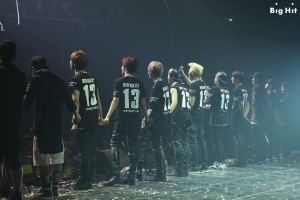 Jackson’s apology was sincere because he expressed his regret; he explained he wasn’t aware he did anything wrong and expressed his gratitude that the fans taught him something and cared enough to inform him of what he did wrong. He genuinely learned from what he did. Rap Mon (or maybe just Big Hit, though if what everyone says about RM having all this freedom in the company is true, then that excuse isn’t going to work for me either) feels no such remorse or impetus to learn anything from anybody. So, no, an off-hand little “My bad” isn’t gonna cut it for me.
Jackson’s apology was sincere because he expressed his regret; he explained he wasn’t aware he did anything wrong and expressed his gratitude that the fans taught him something and cared enough to inform him of what he did wrong. He genuinely learned from what he did. Rap Mon (or maybe just Big Hit, though if what everyone says about RM having all this freedom in the company is true, then that excuse isn’t going to work for me either) feels no such remorse or impetus to learn anything from anybody. So, no, an off-hand little “My bad” isn’t gonna cut it for me.
Hania: The lack of acknowledgement is definitely the most frustrating thing about this whole mess. It’s basically a kick in the face, letting all POC know that our feelings don’t matter and our presence is unwanted.
Jackson’s apology, as others have already mentioned, worked brilliantly because he apologised instantly without getting his company to be the middle-man and take some of the heat off him. He was immediately concerned about how dark-skinned people had perceived his post and apologised while also stating that it was not his intention to offend.
We’ve discussed the power of words already, but the power of which language is used to communicate is also a big factor here. Being able to speak English and therefore having a connection with international fans is key to both Jackson and Rap Monster’s situations. Jackson was able to understand directly from his English-speaking international fans exactly why his post was offensive and had the linguistic tools to respond appropriately and educate himself.
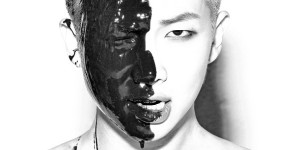 Rap Monster also has the same tools, and cannot hide under the guise of “oppa didn’t mean it,” as his initial remarks were made in English. His ability to speak English has put him in a privileged position to understand what he has done wrong and also to respond directly to the fans via social media, like Jackson did. His ability to speak English and his supposed connection with the hip-hop culture of the US also puts him in a position to understand the cultural context of international fans’ reactions, and yet he has failed to respond at all. This is what makes this situation more hurtful than the other instances of shadeism that we are unfortunately so used to in K-pop.
Rap Monster also has the same tools, and cannot hide under the guise of “oppa didn’t mean it,” as his initial remarks were made in English. His ability to speak English has put him in a privileged position to understand what he has done wrong and also to respond directly to the fans via social media, like Jackson did. His ability to speak English and his supposed connection with the hip-hop culture of the US also puts him in a position to understand the cultural context of international fans’ reactions, and yet he has failed to respond at all. This is what makes this situation more hurtful than the other instances of shadeism that we are unfortunately so used to in K-pop.
In a way, I also don’t mind if Rap Monster’s apology is insincere or extremely belated, because at least it’s an acknowledgement. This silence is absolutely infuriating, and the louder the silence, the bigger this problem will get.
(Images via Big Hit Entertainment, YG Entertainment, MBK Entertainment, Twitter and JYP Entertainment)
